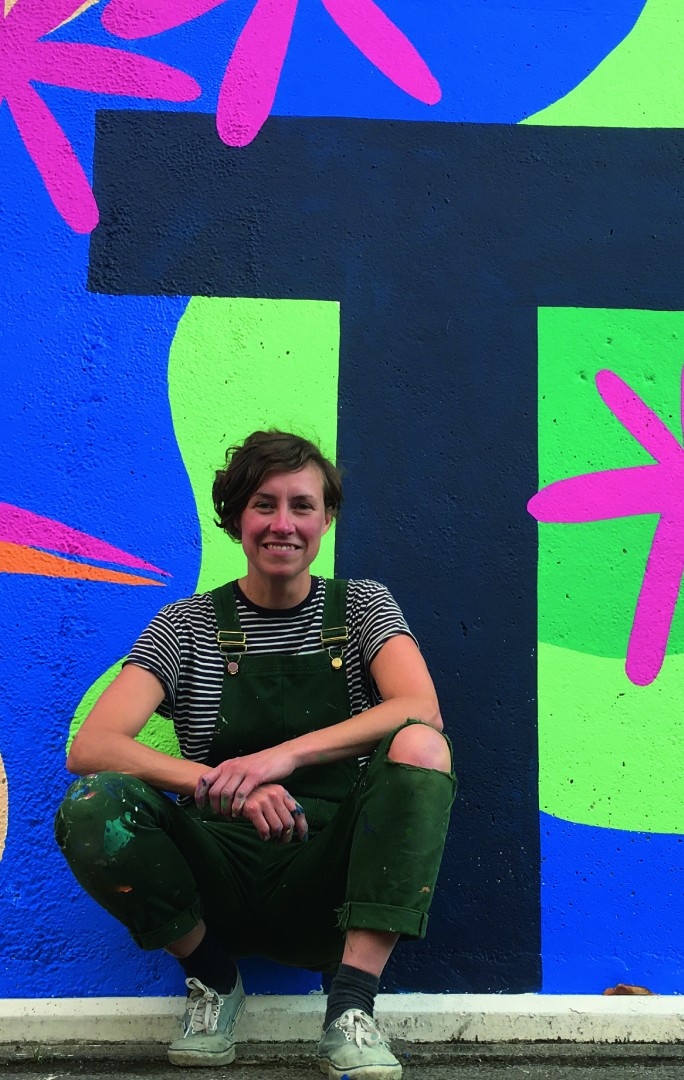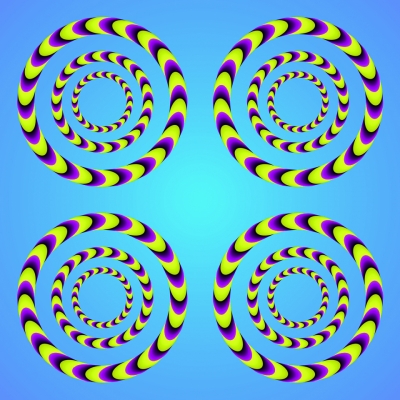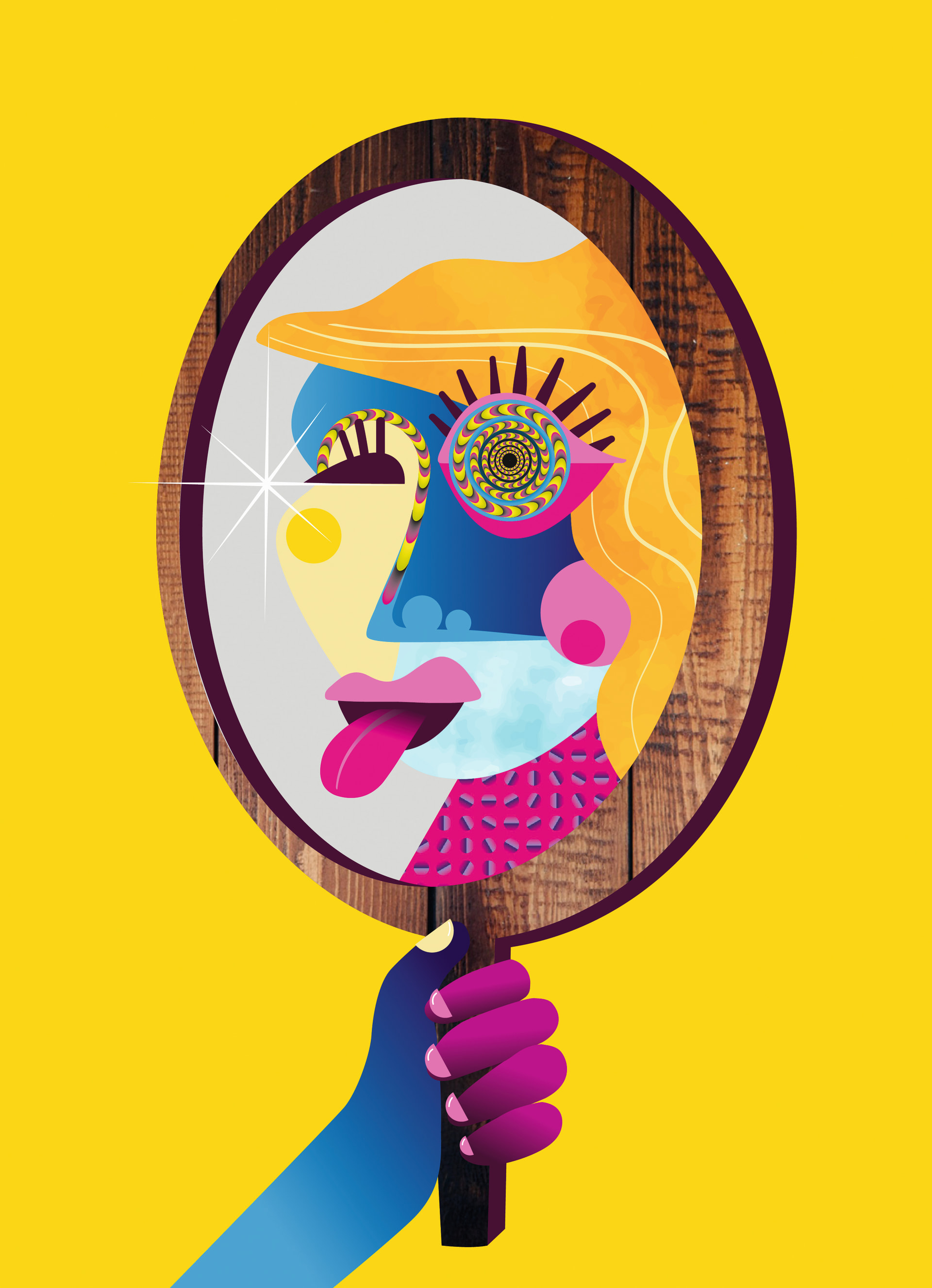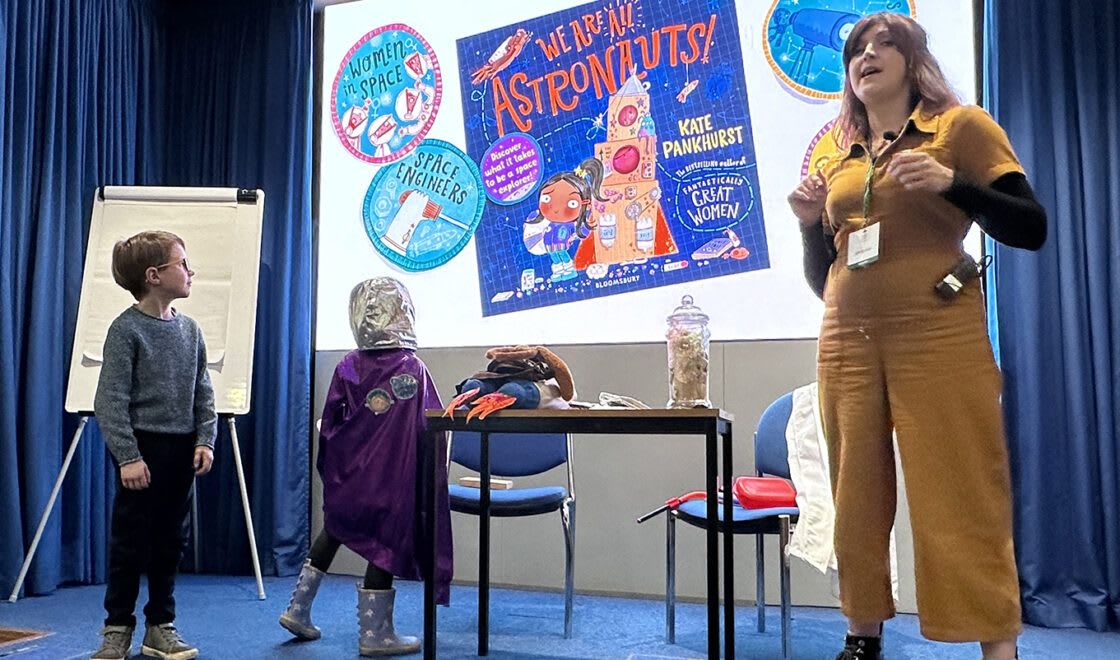"Science is a way of looking at the world around us in many different ways and interpreting what we see to build a picture of truth.”
Comerford, Director of IF Oxford says: “Every day, we humans take onboard and process conflicting views of the same thing, or we might spot familiar patterns across a range of natural systems, like a spiral of a leaf shape, a snail shell, or turbulence within clouds. Sometimes, we’ll even see the impossible. During the Festival we will be looking forward and looking back, into our bodies and brains, and out to the world around us. It’s often when we look at things from different angles that new ideas reveal themselves or we discover something unexpected.”
 This year’s IF Oxford cover illustration is designed by Oxford artist Lisa Curtis, who created a character looking into (or out of ) a mirror or concealing their face with a mask. And while it’s impossible for ink to move on the printed page, the cover of this magazine has pinwheel eyes that appear to turn and textures that pulsate. Lisa commented: “I love creating images of nature that people enjoy, and it was fun to develop patterns, perspectives and arrangements of images that seem to shift and morph before our eyes. These Japanese illusions add a new interactive dimension to artwork so people can experiment with visual perception.”
This year’s IF Oxford cover illustration is designed by Oxford artist Lisa Curtis, who created a character looking into (or out of ) a mirror or concealing their face with a mask. And while it’s impossible for ink to move on the printed page, the cover of this magazine has pinwheel eyes that appear to turn and textures that pulsate. Lisa commented: “I love creating images of nature that people enjoy, and it was fun to develop patterns, perspectives and arrangements of images that seem to shift and morph before our eyes. These Japanese illusions add a new interactive dimension to artwork so people can experiment with visual perception.”
What are we really seeing and how does it deceive our brains? The creator of many optical illusions, Akiyoshi Kitaoka, works in a unique place within the worlds of art and science. Based in Osaka, he is a professor of psychology and has long been fascinated by the power of visual deception, using optical illusions to challenge the viewer’s perception.
The brain is an extraordinary organ, yet it doesn’t always get it right and in an interactive game show event at the Oxford Playhouse, Your Irrational Brain (Fri 27 October), Ginny Smith of Braintastic! Science uses demos, experiments and quizzes to show how our brains trick us not only into seeing the world incorrectly, but into making irrational decisions every day.
Elsewhere in the Festival there’s opportunity for you to consider psychosis, a complex mental health condition characterised by a loss of contact with reality, hallucinations and false perceptions. On Monday 9 October, broadcaster and physicist, Professor Kathy Sykes, chairs a discussion with psychiatrist Paul Harrison to explore experiences of psychosis, sharing perspectives while examining the latest research.
 There’s so much contained within our minds that is unknown, and with hundreds of opportunities for thousands of conversations and connections, why not experiment with something new to you this October?
There’s so much contained within our minds that is unknown, and with hundreds of opportunities for thousands of conversations and connections, why not experiment with something new to you this October?
“Optical illusions are fascinating phenomena, as we perceive things as something they are not,” Akiyoshi comments. “Understanding the patterns of light that reach our eyes takes lived experience and requires assumptions about the physical world. What we believe we are looking at is the result of the brain’s analysis of information from our eyes, interpreted with context, prior knowledge and past experiences. These assumptions are usually accurate but can also lead to errors in perception, causing curious optical illusions, demonstrating that perception is a construct shaped by our efficient biological processing mechanisms, conveniently giving scientists insight on these mechanisms.”
By expanding the types of information we have access to, whether optical illusions on paper, or by experiencing the world in new and surprising ways, we can gain insights into ourselves and how we fit within this world. During the Festival, Dr Matt Pritchard,
a professional science magician who was previously an atomic physicist and now blends science with creativity on stage, will be looking at some of the sneaky scientific secrets behind surprising stage illusions. In a family show at Pegasus Theatre (Sat 28 October), packed with science tricks, stunts and puzzles, you’ll discover how to hide a 3D object in plain sight, defy gravity and make an invisibility cloak. Matt not only encourages you to look carefully and think outside the box to figure out how he tricks your brain with his illusions; he also asks what can we use this for in the future?








